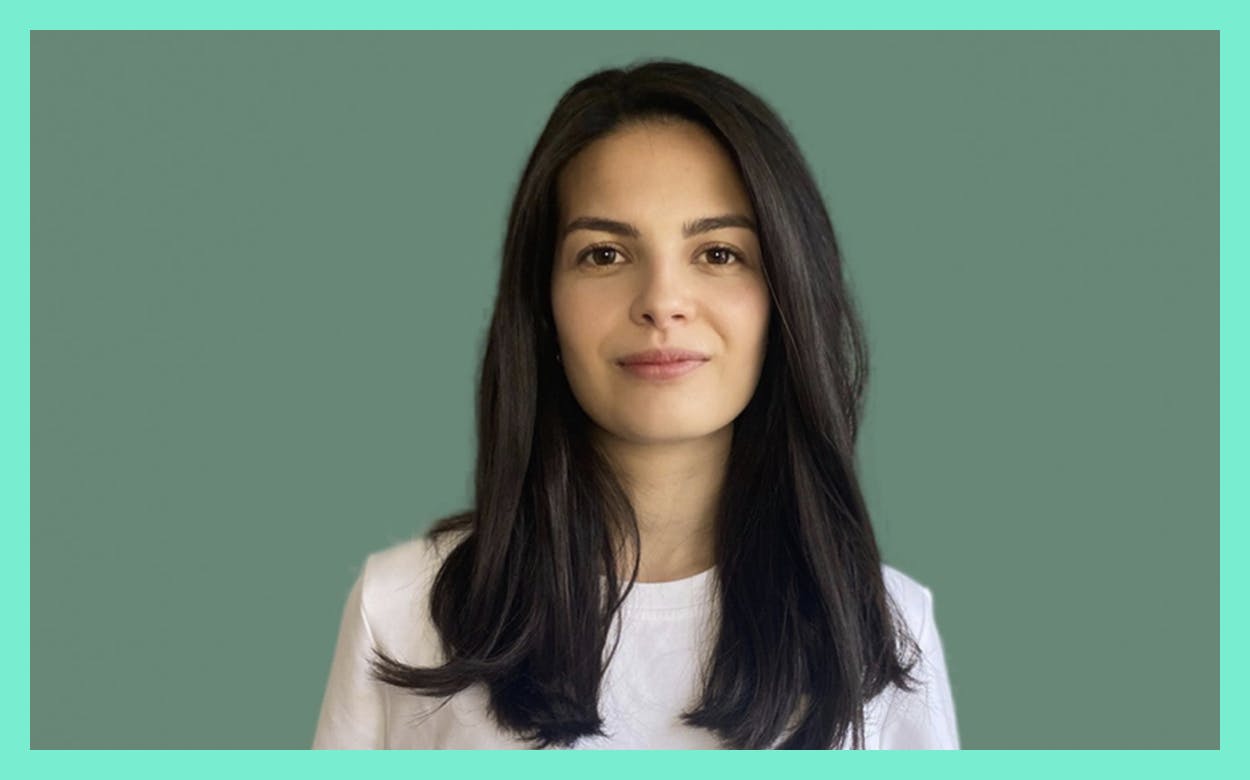Barbara Stegmann (CEO and Co-Founder living brain)
Barbara Stegmann is the CEO & Co-Founder of Heidelberg-based MedTech startup living brain.
With living brain, she develops personalized neurorehabilitation with virtual reality for people suffering from neurological diseases. After studying psychology in Heidelberg, she is now dedicated to bringing neurorehabilitation into the 21st century by combining new technologies and recent research.
living brain’s first product teora®mind combines virtual reality, gamification, and neuroscience to enable patients to regain their cognitive abilities by practicing activities of daily living. The company is the first European provider of VR-based neurorehabilitation that is certified following the requirements of the Medical Device Regulatory.
In addition to her work at living brain, Barbara hosts the podcast "BlackBox," which focuses on true crime cases and their psychological background. While talking about the psyche of criminals, she and her co-host advocate for the destigmatization of mental illnesses and go over topics involving forensic psychology.

Can you explain your job to a five-year-old?
We are inventors. As a team, we create a treatment for people who have hurt their head. A lot of them have problems doing easy tasks—for example, making tea, sorting their fridge, or buying groceries. They have forgotten how to do these things. We try to help them relearn them. In an ideal world, I would like to stand next to them and show them how to make tea, sort the fridge, or buy groceries, so they can remember. But there are too many people, and real life can be dangerous (e.g., handling boiling water).
That is why we’ve built a game world, where people can figure out how to do these things and train until they are ready to do them in real life again. To enter this world, they put on huge glasses with monitors inside—called Virtual Reality glasses. When they wear these glasses and enter the world we built, it feels like they are in another world. In this world, they can practice real-life activities in a safe and fun environment until they remember how to do them.
What excites you most about your job?
First of all, I love to see patients’ excitement when they use our therapy. I also enjoy receiving feedback from relatives who call us to share how things are going, and how their loved ones are improving. It motivates not only me, but the whole team to see that we can actually make a difference in people’s lives by providing them a functional, gamified, and mobile rehabilitation solution.
Secondly, I am intrigued by the possibilities of extended realities and fascinated by how we can use the combination of Virtual Reality and neuroscience. And I am very curious to find out more about how the human brain’s recovery works, and how we can improve rehabilitation and treatment. I think what we currently see in the market is just the beginning of a new world that can be explored.
Which trend will change the future of medicine?
Personalized medicine and treatments. What we currently know about the human body will massively increase with new technologies, health apps, extended realities, and new treatments in general. I believe this personalization, combined with new technologies, will change the future of medicine and bring it closer to patients and their needs.
Looking back, which trends have you missed or underestimated?
I personally think that we are in the middle of a big trend right now: the combination of new technologies and medicine. Smartphones are no longer only for calling people or surfing on the internet, and VR glasses are no longer only used for gaming. Topics like XR, health apps, and robotics are, in my opinion, all part of this—and it is still not clear what will come next, or how these topics will evolve as part of this big trend. Therefore, I would say it is too early to give a final answer to that question.
Which MedTech initiative or startup deserves more attention?
I am definitely biased here, but I would rather go for topics than special startups or initiatives. Therefore, I would say: brain health, neurorehabilitation, and neurological diseases.
Everyone knows at least one person who has suffered a stroke, experienced epilepsy, undergone neurosurgery, or had a traumatic brain injury. But we hardly talk about therapies and rehabilitation.
A lot of the methods are still from the 1950s, and people are waiting up to 12 months for therapy. This year, the WHO adopted the Intersectoral Global Action Plan on Epilepsy and Other Neurological Disorders 2022–2031 (IGAP) and made brain health a priority for the next decade. That is, in my opinion, an important sign because we need to talk more about brain health.
Where would you put a million dollars?
I would use the money to support companies and initiatives that provide treatments, therapies, or prevention concerning the topic of brain health. Therefore, I'd invest in living brain and use the money for market entry and further product development.
What’s the best advice you’ve ever received?
If you're not sure whether you should try something or not, go for it. Otherwise, you will spend the rest of your life wondering what it would have been like if you had tried it.
If it works out: Great! If it doesn't: At least you tried!